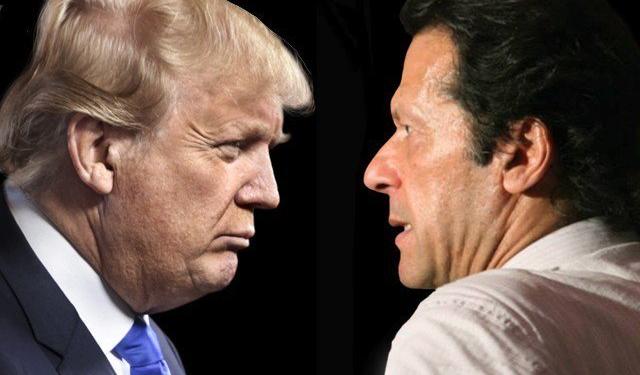On Monday, United State (US) threatened Pakistan for taking concerted action against terror groups in its territory. The latest ultimatum by the US came amidst the ongoing high level meeting between India and the US. Afterwards, Pakistan assured that it will take strict action against terrorism and will take active steps to de-escalate the tensions with India.
US National Security Adviser John Bolton talked to Pakistan’s Foreign Minister Shah Mehmood Qureshi, who assured that the nation is actively working to curb terrorism. In his tweet, John Bolton wrote, “Spoke with Pakistani FM Qureshi to encourage meaningful steps against JeM and other terrorist groups operating from Pakistan. The FM assured me that Pakistan would deal firmly with all terrorists and will continue steps to de-escalate tensions with India”.
Spoke with Pakistani FM Qureshi to encourage meaningful steps against JeM and other terrorist groups operating from Pakistan. The FM assured me that Pakistan would deal firmly with all terrorists and will continue steps to deescalate tensions with India.
— John Bolton (@AmbJohnBolton) March 11, 2019
India’s foreign secretary Vijay Gokhale is on an official visit to the US, where he met the Secretary of State Mike Pompeo on the first day. Earlier on Sunday, Gokhale reached the US for the bilateral Foreign Office Consultation and Strategic Security Dialogue with his American counterparts, Under Secretary of State for Political Affairs David Hale and Under Secretary of State for Arms Control and International Security Andrea Thompson.
After the meeting with US delegates, Ministry of External Affairs (MEA) issued a statement, saying, “They agreed that Pakistan needs to take concerted action to dismantle the terrorist infrastructure and to deny safe haven to all terrorist groups in its territory. They also agreed that those who support or abet terrorism in any form should be held accountable”. Not to forget that both India and US agreed that Pakistan must take “concerted action” to dismantle terrorist infrastructure and deny safe haven to all terror groups on its soil.
In the aftermath of the Pulwama attacks and India’s response in Balakot strike, the US has staunchly stood by India in complete contrast to earlier trends. Acknowledging the air strikes, the U.S. has advised the Pakistani government to not retaliate and avoid military action as a response. Secretary of State, Mike Pompeo said, “Following Indian counter-terrorism actions on February 26, I spoke with Indian Minister of External Affairs, Swaraj, to emphasize our close security partnership and shared goal of maintaining peace and security in the region. I also spoke to Pakistani Foreign Minister Qureshi to underscore the priority of de-escalating current tensions by avoiding military action, and the urgency of Pakistan taking meaningful action against terrorist groups operating on its soil. I expressed to both Ministers that we encourage India and Pakistan to exercise restraint, and avoid escalation at any cost. I also encouraged both Ministers to prioritize direct communication and avoid further military activity.”
The international isolation of Pakistan even after India bombed its territory was in part due to the US’ unconditional support to India in the international forum. Foreign Secretary Vijay Gokhale and other secretaries in the Ministry of External Affairs briefed foreign envoys based in Delhi, including those of the United States, Russia, China, France and the United Kingdom, on the air strike exercising India’s “right to self-defence”. New Delhi reached out to the international community to mobilise support for its “non-military” and “pre-emptive” strike against a terrorist group. And in what can be termed as a diplomatic victory for India, more than 70 countries and the UN Security Council supported the “pre-emptive” strike and condemned the atrocious Pulwama attack and now the US has issued an ultimatum against Pakistan as well.

























